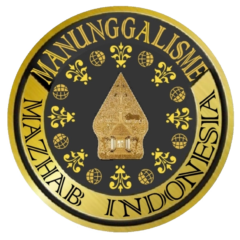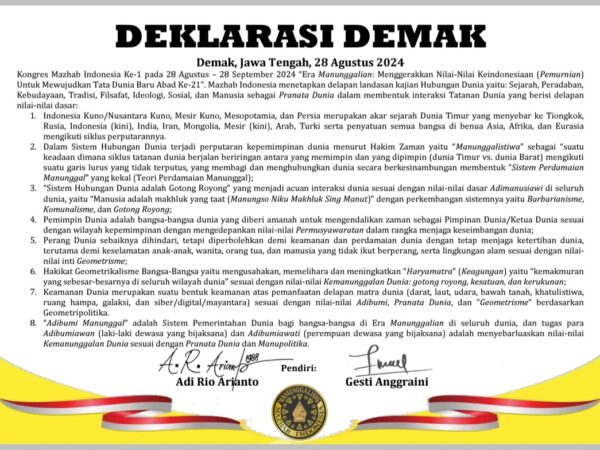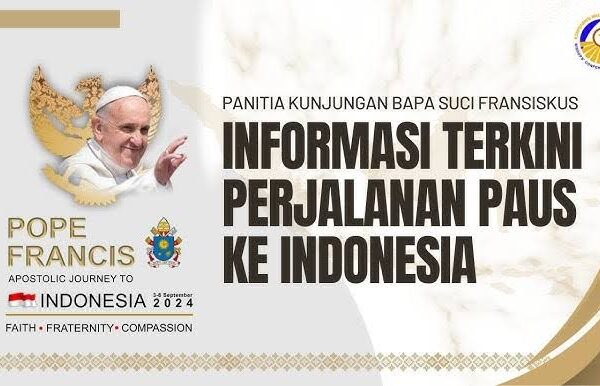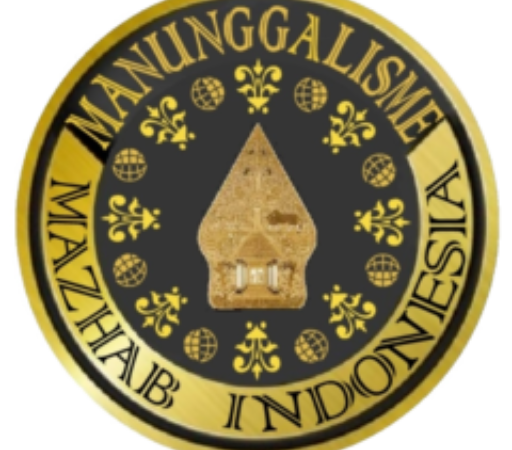- Mazhab Indonesia (Manunggalisme): Paradigma, Filsafat, dan Teori Melihat Hubungan Dunia Berdasarkan Nilai-Nilai Kemanunggalan Dunia.
- Mazhab Indonesia (Manunggalisme): Paradigma, Filsafat, dan Teori Melihat Hubungan Dunia Berdasarkan Nilai-Nilai Kemanunggalan Dunia.
An Indonesian School Perspective with Grand Theory of Manunggalism: Brief Introductions

“An Indonesian School Perspective with the Grand Theory of Manunggalism: Brief Introductions” is a writing that we want to introduce to International Relations Scholars (IR Scholars) and World Relations Scholars (WR Scholars) especially in Indonesia and of course also outside Indonesia, throughout the world. We present this writing as a sustainable path in developing the thinking of the “Indonesian School of World Relations” which is stronger with Indonesian characteristics beyond the “Indonesian School of International Relations” that we have presented in the 10th International Conference on Nusantara Philosophy (ICNP) at Universitas Gadjah Mada.
An Indonesian School Perspective with the Grand Theory of Manunggalism: Brief Introductions
We participated in this activity in my position as one of the best alumni of the Master of Arts in International Relations at the Postgraduate School of the Department of International Relations, Universitas Gadjah Mada as well as the founder (Adi Rio Arianto) and co-founder (Gesti Anggraini) of the Indonesian School which continues to focus as a Scholar to develop paradigms, philosophies, and theories on how to understand the world (worldview) from an Indonesian perspective which we call “Manunggalism”. This Manunggalism thinking is what we continue to develop into the “Indonesian School Perspective with the Grand Theory of Manunggalism”.
Three years after the 10th International Conference on Nusantara Philosophy (ICNP) which we attended at the Faculty of Philosophy, Universitas Gadjah Mada on November 24-25, 2022 with the theme “The Role of Social Epistemology and Ontology for the Future of Humanity.” For two years since 2023, our published article “Manunggalism: Paradigm, Philosophy, and Theory to View the World Relations (WR) Belong to Indonesian School (Mazhab Indonesia) in Manunggalian Era 21st Century” has been downloaded and read 1200 times. This download traffic is above the average of articles that were published together with other writings that were also published in the conference publication.
The 10th International Conference on Nusantara Philosophy (ICNP) was opened by the Rector of Universitas Gadjah Mada, Prof. dr. Ova Emilia, M.Med.Ed., Sp.OG (K), Ph.D. and Dean of the Faculty of Philosophy UGM, Dr. Siti Murtiningsih. The main speakers in this scientific activity are: Honorable Keynote Speakers Rachmad Hidayat, Ph.D. (Gadjah Mada University, Indonesia); Prof. Dr. Lasiyo, M.M., M.A. (Gadjah Mada University, Indonesia); Prof. Dr. Khin Khin Soe (University of Yangon, Myanmar); Prof. Dr. David Ludwig (Wageningen University and Research, Netherlands); Prof. Dr. Jean-Christophe Merle (University of Vechta, Germany); Prof. Sheila Nair, Ph.D. (Nothern Arizona University, United States); Agus Wahyudi, Ph.D. and Rona Utami, S.Fil., M.A. (Moderatos).
Around 160 participated in presenting their ideas and 54 were selected as the best ideas. This scientific activity was attended by eight countries from all over the world, namely India, Indonesia, Austria, Italy, Malaysia, Singapore, Ukraine, and the United States. There are 20 titles of works with the best ideas that have been selected and published on the UGM Digital Press conference platform. All ideas are represented by the conference sub-themes: social epistemology, social ontology, indigenous knowledge and philosophy, decolonization of the history of philosophy, decolonization of science, feminist epistemology, political epistemology, applied philosophy, anthropocene discourse, philosophy of law, archipelago philosophy, local wisdom, philosophy of technology and other related themes.
The Key Aspects of An Indonesian School Perspective with the Grand Theory of Manunggalism
On this occasion, we will explain in more detail about “An Indonesian School Perspective with the Grand Theory of Manunggalism”. And to make it easier for scholars to understand “Indonesian School Perspective with the Grand Theory of Manunggalism”, we divide it into several points with the following descriptions:
1. Manunggalism: Central Paradigm, Philosophy, and Theory of Indonesian School
First, “Manunggalism” itself as a central paradigm, philosophy, and theory to understand world relations from an Indonesian School perspective with an emphasis on the values of World Unity which are excavated from historical values, civilization, culture, tradition, philosophy, ideology, society, and human nature of the eastern world, especially the values of Asia, Africa, and Eurasia and connecting them with each other. The “Grand Theory of Manunggalism” is a framework developed in the context of Indonesian thought and world relations, offering a distinct perspective on the world order and global dynamics. It challenges the traditional Western-centric view of international relations by proposing a new discipline called “World Relations” (WR), which emphasizes the interconnectedness and interdependence of diverse values and societies. The Grand Theory of Manunggalism aims to contribute to global peace, security, and development by promoting cooperation, mutual understanding, and peaceful resolution of conflicts. It offers a unique perspective on world relations, emphasizing the importance of gotong royong, unity, and harmony in achieving a more peaceful and prosperous world.
2. Demak Declaration on the 1st Indonesian School Congress 2024
Second, the “Demak Declaration” based on the 1st Indonesian School Congress on August 28, 2024, the document contains eight matters regarding ways to build world relations. The 1st Indonesian School Congress on August 28 – September 28, 2024 “The Manunggalian Era: Mobilizing Indonesian Values (Pemurnian) to Realize the New World Order of the 21st Century”. The Indonesian School establishes eight foundations for the study of World Relations, namely: History, Civilization, Culture, Tradition, Philosophy, Ideology, Social, and Humans nature as the World Institutions in forming World Order interactions containing eight basic values.
3. The “Indonesian School of World Relations” Beyond the “Indonesian School of International Relations”
Third, the “Indonesian School of World Relations” is a school of thought (paradigm, philosophy, also theory) and intellectual movement that seeks to develop a unique Indonesian perspective on world relations issues, world politics, world war, world security, and world peace. This school of thought emphasizes the importance of understanding world complexities through the lens of Indonesia in eight dimensions such as historical values, civilization, culture, tradition, philosophy, ideology, society, and human nature of Indonesia. The Indonesian School of World Relations aims to contribute to the development of world relations theory and practice by offering a unique perspective that reflects Indonesian values and experiences. This school of thought is associated with the development of Manunggalism, a philosophical framework that emphasizes gotong royong, unity, and harmony among nations and individuals.
4. The “Eastern World Relations Theory (WRT)” Against the “Western International Theories (IRT)”
Fourth, the “Eastern World Relations Theory (WRT)” is set of World Relations Theories in challenging the dominant Western International Theories (IRT) at world level, and instead, develops a distinct Indonesian approach. WRT is Integrating insights from various fields, including international relations, politics, sociology, anthropology, philosophy, and also mathematics. Therefore, WRT offers Geometripolitics theory as an approach to understanding Fifth Base World Security. Manunggalism divides the world into eight dimensions, including land, sea, air, underground, equator, vacuum, galaxy, and cyberspace. This framework suggests that these dimensions are interconnected and influence each other, and that understanding these connections is crucial for understanding the world order.
5. Manunggal Peace Theory
Fifth, The Manunggal Peace Theory emphasizes the importance of gotong royong, unity, and harmony in achieving peace and stability in world relations. Key aspects of the Manunggal Peace Theory include: (1) Unity in diversity: Recognizing the diversity of cultures, nations, and societies while promoting gotong royong, unity, and harmony; (2) Holistic approach: Considering the complexities of global issues from a multidimensional perspective; (3) Indonesian worldview: Drawing from Indonesian values to inform understanding of peace and world relations. The Manunggal Peace Theory aims to contribute to a more nuanced and inclusive understanding of peace, one that reflects the complexities and nuances of Indonesian values.
6. The “Manunggal World” Against the “Atlantical World”
Sixth, the “Manunggal World” is a vision of a global community that is united, harmonious, and equitable. With key principles: (1) Unity in Diversity: The Manunggal World emphasizes the importance of gotong royong, unity, and harmony among nations and cultures; (2) World Citizenship: The concept promotes a sense of world citizenship, where people and world-nations recognize their shared humanity and responsibilities’ (3) Harmony with nature: The Manunggal World vision emphasizes the importance of living in harmony with the natural world and promoting sustainable development. The Manunggal World is a vision for a more harmonious and equitable world community, where world-nations and people work together to promote peace, development, and understanding.
7. The “Pranata Dunia“: The Eastern Institutional
Seventh, “Pranata Dunia” as the basis of institutional from the Indonesian School of World Relations include: World Relations System: Developing and promoting Indonesian perspectives on world relations system using “gotong royong system”; Regional studies: Examining regional issues and dynamics, particularly in Asia, Africa, and Eurasia; World Governance: Encouraging Indonesian participation in global governance and world institutions; also Manunggal Cultural Diplomacy: Promoting Indonesian Manunggal culture and values through diplomatic efforts.
8. Manunggalistiwa: Eastern World vs. Western World
Eighth, “Manunggalistiwa” as “a condition where the cycle of world order runs side by side between the leader and the led (Eastern world vs. Western world) following an unbroken straight line, which divides and connects the world continuously forming an eternal “Manunggal Peace System”.
9. Manunggalian Era: the Purification of World in 21st Century
Ninth, Manunggalian Era (Purification Era) by using the “Gotong Royong as a World Relations System.” In this way, “Mazhab Indonesia (Manunggalism): Indonesian School of World Relations” consider that the Era of Manunggalian (Purification) is the lapse of time in which the process of purifying Eastern institutions of historical values, civilization, culture, tradition, philosophy, ideology, society, and humanity spanned 700 years, starting from 2000 to 2800, following the line of rotation and map the world order in the 21st century, the 22nd to 28th, etc follows Manunggalistwa.”
10. Indonesian School: Connecting the Manunggalism to other Schools
Tenth, the Indonesian School also expands the network of cooperation between thinkers in paradigm, philosophy, and theory in order to connect the Indonesian School with other world schools such as: the English School, the American School, the Copenhagen School, the Canadian School, the Russian School, the French School, and the Frankfurt School, the Indian School, also the Chinese School.
To be able to understand more about the “Indonesian School Perspective with the Grand Theory of Manunggalism” please visit the link to the work on this topic that has been published in UGM Digital Press: https://digitalpress.ugm.ac.id/article/433
Visit Google Sholar https://scholar.google.co.id/citations?user=lrNPJsOQUHwC&hl=id



